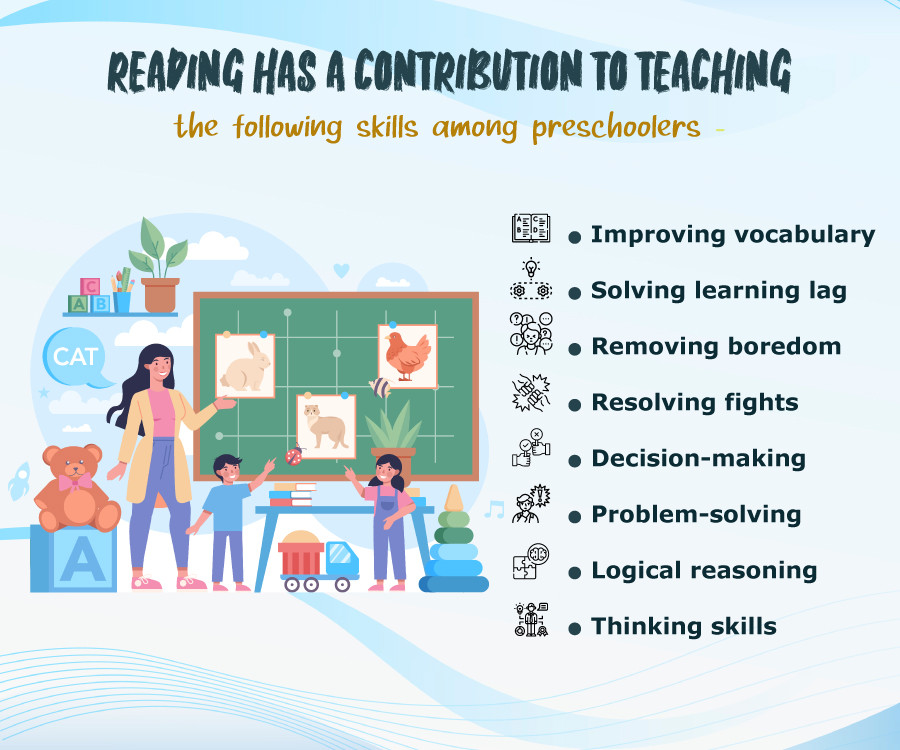We as parents always wish that our preschooler waves ‘bye-bye’ to his/her father without the background sounds of sobs and cries! Parents hope that their children obey them, are keen on attending school daily, get along well with friends, and have proper food, sleep and toilet training.

Are you worried about your preschooler’s behavior problems? The transitional age (three years) from toddler to preschooler brings independence from diapers to being potty trained, and from being confined at home to playing in the neighborhood. However, this freedom often comes with preschool struggles like frequent temper tantrums, fights over toys, fussiness about food choices and lying. All this makes parents anxious!
I tried distracting my preschooler when her father was about to leave for work. But kids are smart. She would often guess that something was fishy and would run around her father in the morning hours. I got anxious about how to deal with the separation anxiety. After being fed up with many rounds of consoles, walks, talks, merry-go-rounds and ice-creams, I sought help from my parents, grandparents and The Art of Living Parenting Community.

The Art of Living Parenting Community shares some of the amazing secrets of handling a kid to a teenager. Perks from our Parenting Community -
- E-content on parenting skills
- Get solutions to your child’s challenges
- Learn to handle their mood swings
- Understand your child’s psyche
Guess what? Raising my daughter became smoother by the time she started school because of the following seven parenting tips for preschoolers -
Involve your preschooler in deciding on a school
After visiting a few schools, we asked our preschooler’s opinion. The ambiance and teachers’ interaction with her caught her attention at one school. This was the most rewarding decision we took, as there was not a single day when she refused to go to school. I reminded her now and then that it was her chosen school and she enjoyed each day. She would only request us to pick her up after school.
Involving your preschooler in deciding on a school solves the problem of early morning tantrums to be ready for school and separation anxiety to a large extent.
Include preschool routine in your preschooler’s make-believe games
Usually, food, sleep and toilet timings are disturbed when your preschoolers go to school. I suggest you obtain a detailed routine of the preschool your child has been admitted to, well in advance. Play with them the make-believe games to get them accustomed to their food, sleep and toilet timings. Your child can adjust to the new environment, overcome emotional turmoil and have an enjoyable childhood.
Be relaxed when you catch your preschooler lying
When I learned about my 3-year-old daughter lying, I was shocked.

Gurudev Sri Sri Ravi Shankar says, “Fear and greed are the two reasons for lying.”
Gurudev’s wisdom guided me through this shocking situation. I found that my daughter was scared of house lizards, and so she lied about brushing her teeth.
If they lie and get caught, they are not good liars. Your confrontation with your children about their lying habits will push them to hide more often. That could be dangerous.
Praise and Involve them
When your preschooler is doing what you want them to do, praise them enough. Tell him that he is showing more responsible behavior than when he is disobedient. Do not blow up issues of disobedience. Be calm and involve your kid in doing something in another way. For instance, if he refuses to have poha for breakfast, give him two food choices. Consequently, he not only gets involved in decision-making but also secures his freedom.
Encourage reading books as it stimulates their imagination
To start with the reading habit, initially, you can read to your child. Later they can read a few lines with your assistance.

Children fall in love with books because of the memories created when they snuggle up and read with someone they love!

Watch meaningful videos with your child to help him into the habit of solving problems.
Replace “If statements” with “When”
“If statements” suggest that your child may not obey you. “If you finish your meal, I will give you an ice cream.” But a “When” statement brings hope that your child will obey. “When you finish your meal, we will all have ice creams.”
Listen to your preschoolers
Give your preschoolers an environment where they can pour their hearts out. Let them know that you are always with them. Half the problem is solved if you hear them intently.
To summarize
At every milestone of parenting, the process of loving your little one should always be liberating and not entangling them to fulfill your desires. Parenting is raising your children to be independent. Allow their intelligence to grow with the support of your culture, ideas and moral values.
Recommended reads
The book, Gods and Goddesses, is an illustrated series written by Smt. Bhanumathi Narasimhan, Director, Child and Women Welfare Programs at The Art of Living International Center. It contains a short explanation of each deity and is associated with birds, animals, or flowers.
You can explore more about a special workshop to get rid of anxiety and sleep disorders.
You could also attend a Know your child workshop to help you connect better with your child.
This article is written by Pratibha Sharma.


















